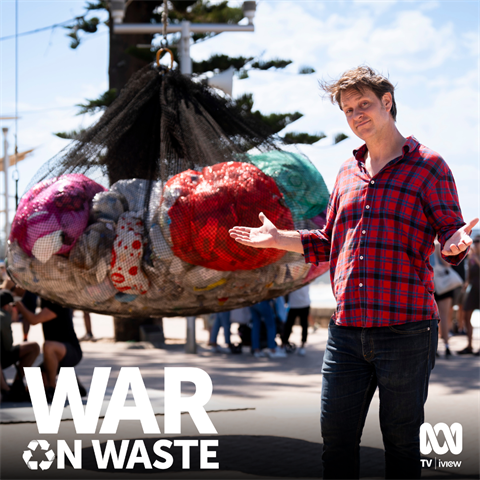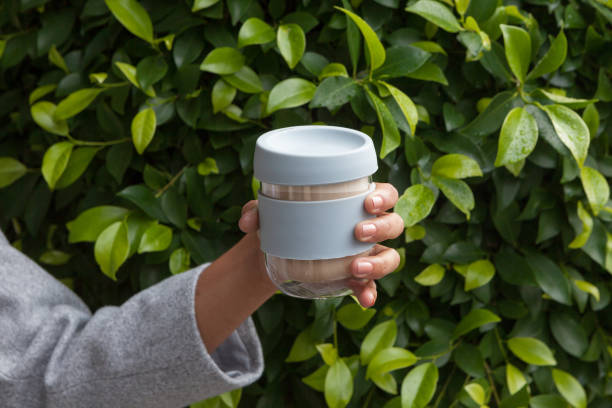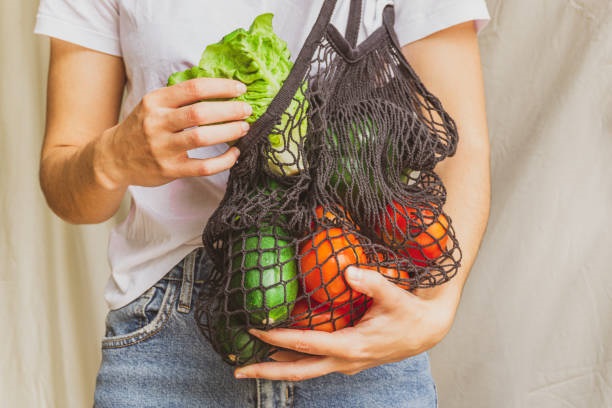Help the Tweed fight the war on waste!
01 August 2023

The Australian Broadcasting Corporation's (ABC) War on Waste program has been raising awareness about the environmental issues caused by waste across Australia.
Season 3 of this popular show is out now and ready to highlight our biggest challenges, as well as showing us the steps we can take to reduce the amount of waste we generate in our households and businesses.
We’re asking Tweed to join the battle, so that we can work together to reduce our impact in the natural environment and adapt our behaviours for a more sustainable future.
Watch the season via ABC iview.
Join the battle against plastic waste
In the first episode, the War on Waste echoes what we know: that plastics are a major problem when it comes to harming our environment.
Soft and hard plastics that can’t be recycled go in our red kerbside bins and end up in landfill.
Plastic waste that makes it to our parks and waterways takes hundreds of years to break down and can seriously affect local wildlife and add to the microplastics in our ecosystems. Sadly, according to the NSW EPA, 60% of all litter in NSW is some sort of plastic packaging or single use plastic item.
And according to this article from the World Wildlife Federation Australia, plastic straws take around 200 years to break down. A plastic water bottle, up to 450 years.
Although many types of plastic bottles and containers (such as takeaway food containers) can be recycled via your yellow household recycling bin, the best strategy is to choose to reuse or avoid plastic waste whenever possible.
Keep soft plastics out of our yellow and green kerbside bins

Soft plastics such as plastic bags, chip packets, cling film and other food packaging – think of any packaging that makes a scrunchy sound when you squash it – are a big problem here in the Tweed.
Soft plastics are not recyclable and must be placed in your red kerbside bin.
Please don't place recyclables or food waste in plastic bags
You may not realise it, but bagged recyclable items can't be recycled and end up going to landfill.
This is one of our biggest bin contamination issues here in the Tweed: people placing recyclable items in plastic bags. A first step is to ditch the bag and free your recycling!
The same goes for food waste. Never place food waste in a plastic bag before it goes in your green bin.
If you want to use bags for food scraps, please ensure you only use Australian Standard compostable bags, these are the only bags that will not contaminate the green organics composting service we offer in the Tweed.
Bin contamination disrupts the recycling and composting process and ultimately costs residents' money and resources to manage.
Why can’t I recycle my soft plastics like I used to?
Put simply, soft plastics are incredibly difficult to recycle. The nature of consumer plastic packaging is that there are just so many different varieties of soft plastics.
Currently, there is no cost-effective way for Council to recycle these materials, although we are continuing to look into options to recover this type of plastic. For more information on the complexities of plastic recycling here's a great article by the ABC.
Until there is a better solution, please place all soft plastics in your red kerbside bin – or better still, avoid them altogether.
We have included some tips below on how to avoid soft and single use plastics.
Simple ways to avoid single use and soft plastics

Say no to single use plastics by using:
- reusable coffee cups
- reusable water bottles
- reusable bags and produce bags
- your own reusable containers at take away places where you can
- cloth, beeswax or other reusable covers for leftovers, not plastic wrap.
Reducing soft plastics by:

- baking not buying
- cutting down on chips or chocolate (we know this is a hard one!)
- buying bulk where you can
- using reusable bags and produce bags
- choosing loose produce, not package
- if you must buy packaged produce, reuse the bags for lunches or other food items.
By making simple changes we can all play a part in helping fight the war on plastic waste in the Tweed!
Next up, we'll tackle the war on food waste!